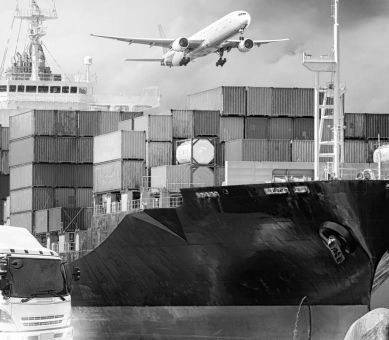‘I’m being quoted £10,000 for a £1,600 container’ (BBC article on the cost impact on a UK based importer of furniture*). “In Hong Kong we have been used to a rebate of $50 for use of a container and now we are being charged over $1000 for a container” (CILT HK member). “In India as people returned to their home villages as workplaces closed down they tried to ship their belongings home too. Out of no choice, people were forced to scrap their belongings due to the heavy logistics costs involved. Those who collected quotations from various agencies realized that the transportation cost is higher than the cost of the items itself.” (contact of CILT from India). “In Europe to transport from Asia typical sea freight prices are $10,000 – $12,000 per unit. Last July they were $800 – $ 1600 per unit” (CILT Ireland member).
All these are common experiences as we go into 2021. Reasons are varied but are in effect down to demand and supply. The pressure on the marketplace is being driven by:
- Increases in product flows related to the Covid-19 demand for PPE and medical goods
- Increases in demand for products in certain sectors driven by different consumer behaviours in the Covid-19 lockdowns – for example demand for home furnishings, home decoration, garden furniture etc.
- Trade changes and obstacles to speed of transit due to increased health checks and one off impacts such as Brexit between the UK and Europe
- A lack of available containers round the world – empties in one place and lack of available containers in another
The reasons for this are not yet clearly understood. We also face in 2021 the likely impacts of economies slowing down as the full economic impacts on jobs and prosperity hit many countries later in the year.
The impacts of the current situation are being felt by many. Please read this article by Jerin Joseph, a CILT friend in India, and this story from the BBC in the UK.
An example of where there are too many empty containers and the reasons is seen in Australia and can be understood through this Shipping Australia Ltd article
In CILT we will continue to monitor this and exchange information on background causes and local impacts so do share such information with us. Unfortunately we are not yet in the position where as an organisation we can control such price movements, and no doubt never will be, but we can seek to understand the reasons and the impacts on flows of goods globally.
* The impacted business has connected with us since to comment on the issues that impacts many businesses globally. As transport professionals we were keen to highlight the issue and also pleased to partner with a business that has sustainability high up their agenda houseof.com

